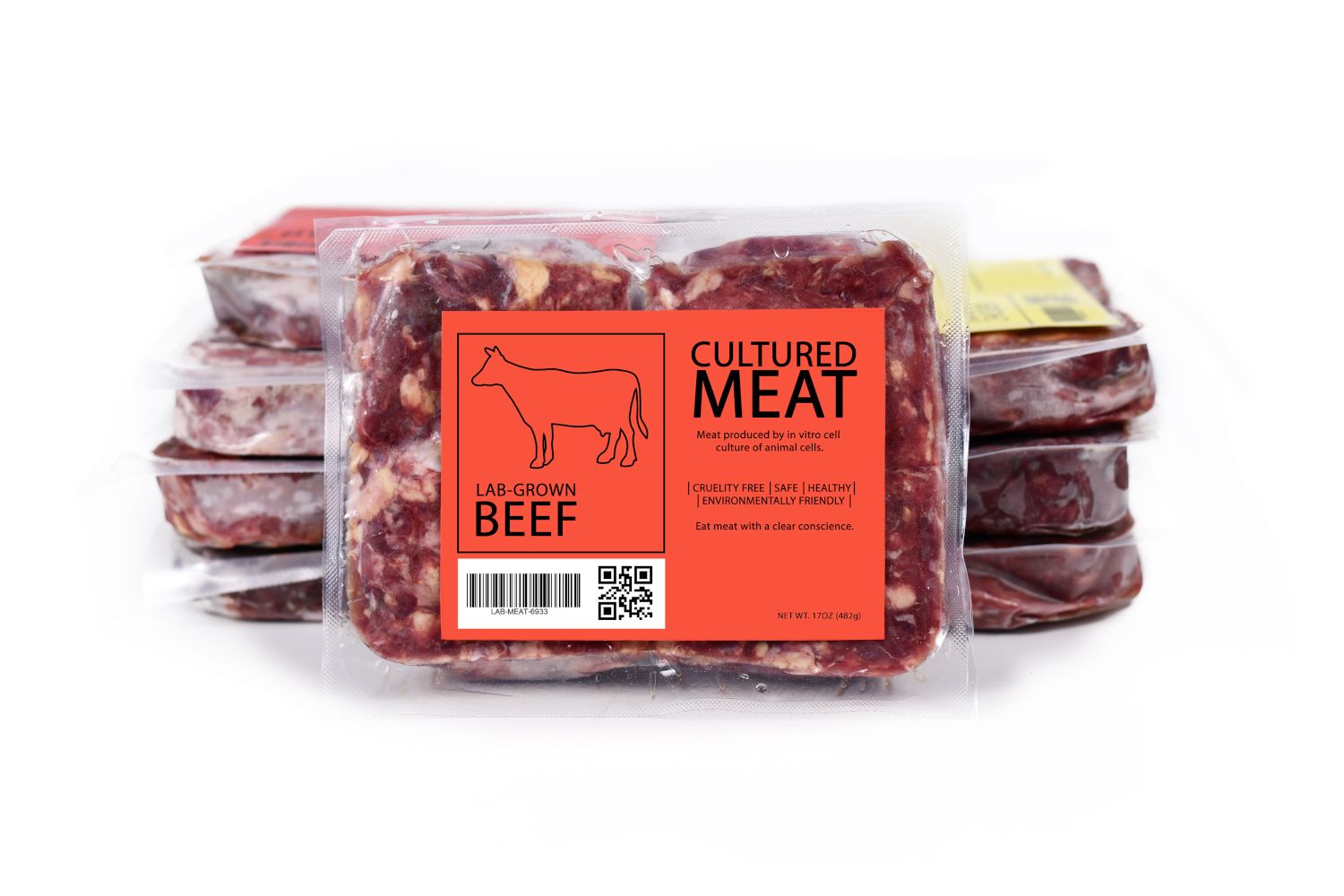Recent survey finds high level of openness to cultivated meat
Results showed that out of 4025 adults, 2018 from the U.S. and 2034 from the U.K., 40% of respondents from each country were at least somewhat likely to try cultivated meat, and 40% from each country considered themselves very or extremely likely to try cultivated meat.
Photo © AdobeStock.com/Firn

A recent survey published in the journal Foods1 found that there is a high level of openness for cultivated meat in the U.S. and U.K. Cultivated meat, from cell cultures, offers the potential to produce meal directly from animal cells rather than harvesting meat from livestock. Unfortunately, animal products contribute about 57% of food-related greenhouse gas emissions and use about 83% of the world’s farmland, despite providing just 37% of our protein intake and 18% of our calories.
Results showed that out of 4025 adults, 2018 from the U.S. and 2034 from the U.K., 40% of respondents from each country were at least somewhat likely to try cultivated meat, and 40% from each country considered themselves very or extremely likely to try cultivated meat. In the U.S. and U.K., only 21% and 22% of respondents, respectively, said they were not at all likely to try cultivated meat. In both the U.S. and U.K., 44% of respondents said they were somewhat likely to buy cultivated meat, and 26% said they were very likely to buy cultivated meat. A similar percentage in both countries also said they were somewhat and very likely to use cultivated meat as a replacement for conventional meat. On the other hand, less respondents were willing to pay more for cultivated meat, with 50% of U.S. respondents stating they were not likely to pay more and 55% of U.K. respondents stating they were not likely to pay more for cultivated meat.
Unsurprisingly, familiarity with the concept of cultivated meat, and support for the technology was higher among Gen Z and millennial respondents from both countries, but the majority of respondents from all generations said they were somewhat likely or very likely to try cultivated meats. When it comes to the nomenclature of the cultured meats, the terms “cultivated meat” and “cultured meat” were preferred among respondents from both countries, with “cultured meat” slightly edging out “cultivated meat.”
“The results suggest that cultivated meat is likely to be widely accepted by the general public, especially the younger generations and an eager group of early adopters who appreciate its benefits across a wide range of social issues. These groups tend to embrace change and need little encouragement to try new food innovations,” said lead researcher Keri Szejda, PhD, founder and principal research scientist of North Mountain Consulting Group, in a press release. “Additionally, we observed an increase in support for the technology once consumers had access to additional information, underscoring the importance of effective science communication for consumer adoption.”
“In contrast to the younger eager adopters, the older generations are more wary of change,” added Didier Toubia, co-founder and CEO of Aleph Farms, a cultivated meat company which commissioned the survey. “Social proof is important to them and they want to be assured that a product is safe, functional, and beneficial before they adopt it. This is why transparency and trust are cornerstones of our company.”
Among the top reasons for adoption of cultivated meat in both countries were environmental protection, no pathogens, no antibiotics, and food security. When looking at the types of seals of approval consumers would want to see on cultivated meat products, the most important were approval from regulatory bodies such as USDA and FDA in the U.S., and FSA in the U.K. Additionally, consumers from the U.S. and U.K. much preferred to purchase cultivated meats that were not genetically modified.
Reference
- Szejda K et al. “US and UK consumer adoption of cultivated meat: a segmentation study.” Foods, vol. 10, no. 5 (2021): 1050
Prinova acquires Aplinova to further increase its footprint in Latin America
April 7th 2025Prinova has recently announced the acquisition of Brazilian ingredients distributor Aplinova, which is a provider of specialty ingredients for a range of market segments that include food, beverage, supplements, and personal care.










